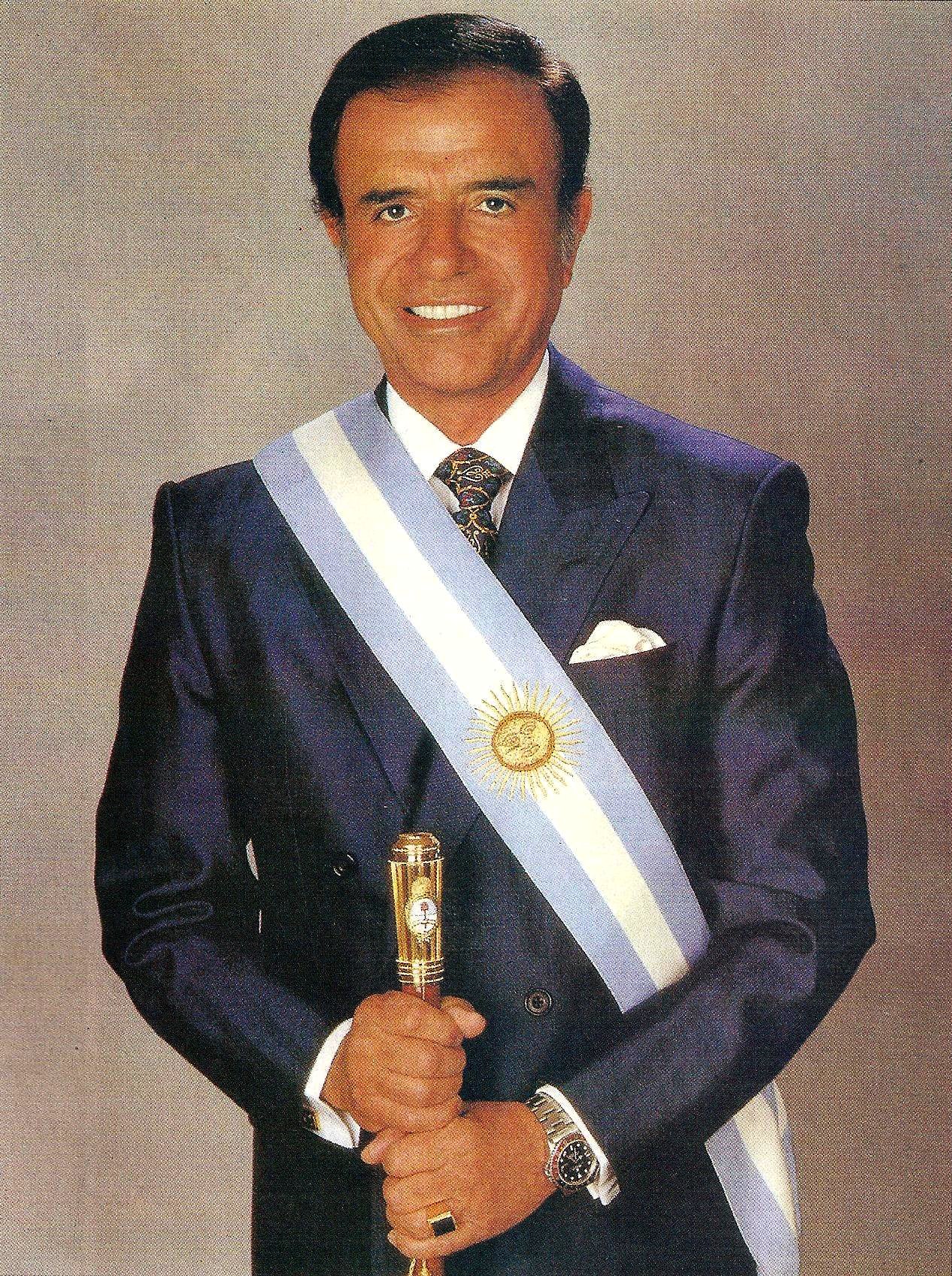[I highly recommend this book. Naturally, Romero (the author) infuses the work with his own political opinions, & since I don't know much of this history from any other source, I don't (yet) have a contrasting point of view. Still, I learned a lot. It's available as an ebook.]
 |
| President Carlos Saúl Menem |
Menem combined discretion with a style of governing more suited to a monarch than the chief of state of a republic. To judge by those who knew him intimately, Menem concentrated on politics but was not terribly interested in policy matters. He offered broad objectives and delegated to his collaborators the specific details, which bored. him. Thus he is remembered as listening to the explanation for some important matter while he watched a soccer match or flipped through the channels of his television. Moreover, he continued to enjoy a playboy's lifestyle despite being married. For his nocturnal endeavors, he generally used a suite in the luxurious Alvear Palace, whose owner was one of the members of his intimate circle. Menem relished flouting convention and even the law; he drove a Ferrari sports car that he had received as a presidential gift, for reasons that were never made clear, at high speeds and traveled in two hours from Buenos Aires to the seaside resort of Pinamar and at similar speeds to other beach resorts for an occasional wild weekend. After his public separation from his wife, Zulema Yoma, whom he had evicted by force from the presidential retreat in Olivos, he became somewhat more sedentary and transformed the presidential residence into a veritable court, with its own golf course and private golf instructor, zoo, valet, physician, hair stylist, "court jester," and a select group of courtesans, comrades during his nights of insomnia and witnesses to his recurring bouts of depression. Like a medieval prince, he often trotted the globe with his retinue aboard a presidential airplane worthy of a monarch. . . .
Among the original fideles, there mingled provincial politicians, union leaders, former Montoneros now transformed into neoliberals, extreme right-wing groups, ex-collaborators of Admiral Massera, and other fauna that he had collected throughout his political career. Soon others joined him, recruited among his defeated rivals, the renovadores. Loyalty was rewarded with protection and impunity as far as possible.
In addition, the chief executive was the caretaker of the spoils of office, which he distributed generously. Such had always been the true sign of authority in political leadership in Argentina, and Menem refined the practice. Corruption was widely employed to wear down resistance and coopt adversaries by sealing a pact among the members of the governing circle as powerful as the blood pact that united the military under the dictatorship. Corruption was practiced in an ostentatious fashion. "Nobody makes money by working," the trade-union official Luis Barrionuevo declared, before proposing as a solution to the country's troubles that "everyone stop stealing for two years."


No comments:
Post a Comment